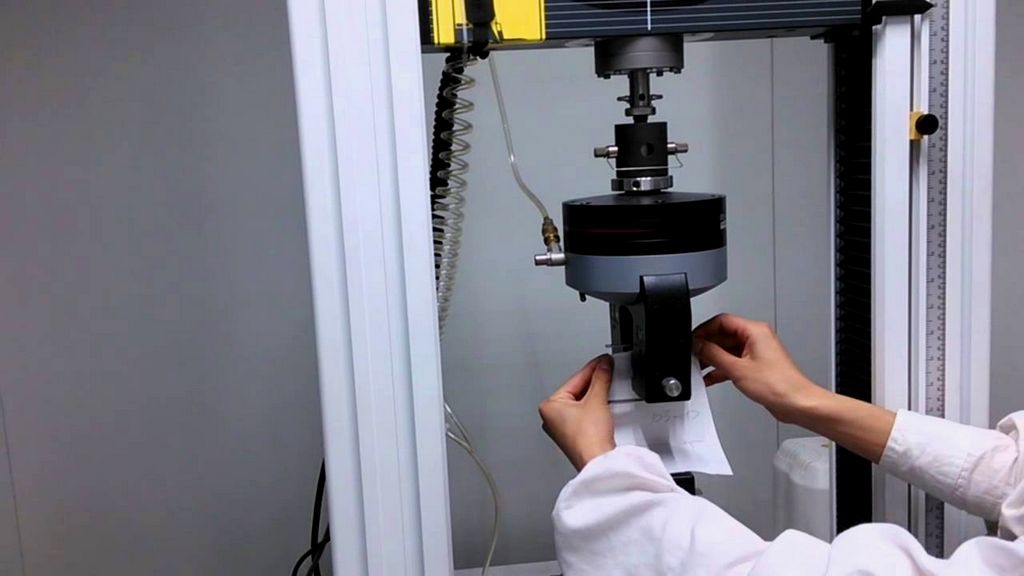
Copyright © 2020 EUROLAB Laboratory Inc. All rights reserved.

In the ASTM D1682 standard developed by the American Test and Materials Association (ASTM), test methods for determining the breaking load and elongation of textile fabrics are presented. The test methods included in this standard are: the torn strip method and the cut strip method. The full name of this standard is as follows: ASTM D1682 Standard test methods for breaking load and elongation of textile fabrics.

Tear or breaking strength is defined as the force required to start and maintain a fabric tearing in the weft or warp direction under certain conditions. A tear in a fabric or garment usually occurs gradually along a line. Various methods are used to measure the tear strength. For example, the bilingual tear test, the trapezoid tear test (ASTM D5587), and the single tongue tear test (ASTM D2661, BS 4303).
ASTM D1682 standard was withdrawn in 1992. Later, this standard was replaced by the following two standards:
Grip and modified grip test methods are presented in ASTM D5034-09 standard to determine the tensile strength and elongation of many textile fabrics. While the grip test method can be applied to woven, non-woven and felt fabrics, the modified grip test method is primarily used for woven fabrics.
In the ASTM D5035-11 standard, the torn strip test method and the cut strip test method are presented to determine the tensile strength and elongation of many textile fabrics. The torn strip test method is applied to woven fabrics, while the cut strip test is applied to nonwovens, felt fabrics and dipped or coated fabrics. This test method is used for knitted fabrics or fabrics with greater than 11 percent high stretch. is not recommended for.
With the experience gained over many years, our organization also provides standard testing services for ASTM D1682 textile fabrics' breaking load and elongation within the framework of laboratory services of materials with a trained and expert staff.
To get an appointment, to get more detailed information or to request an evaluation, you can ask us to fill in our form and reach you.